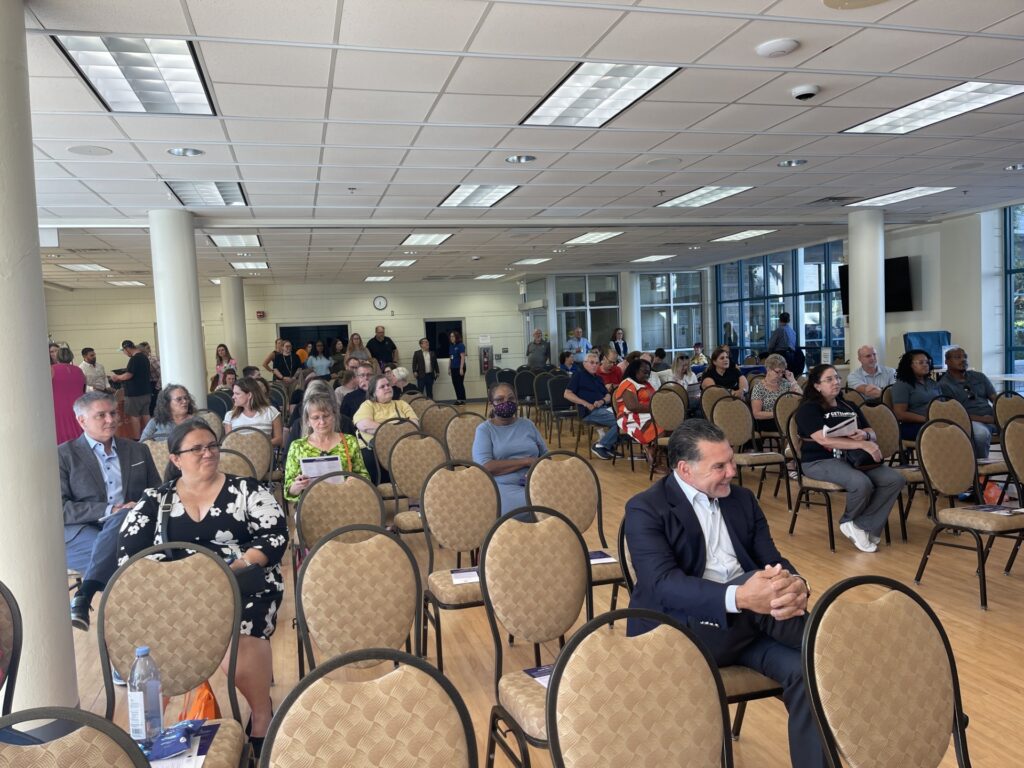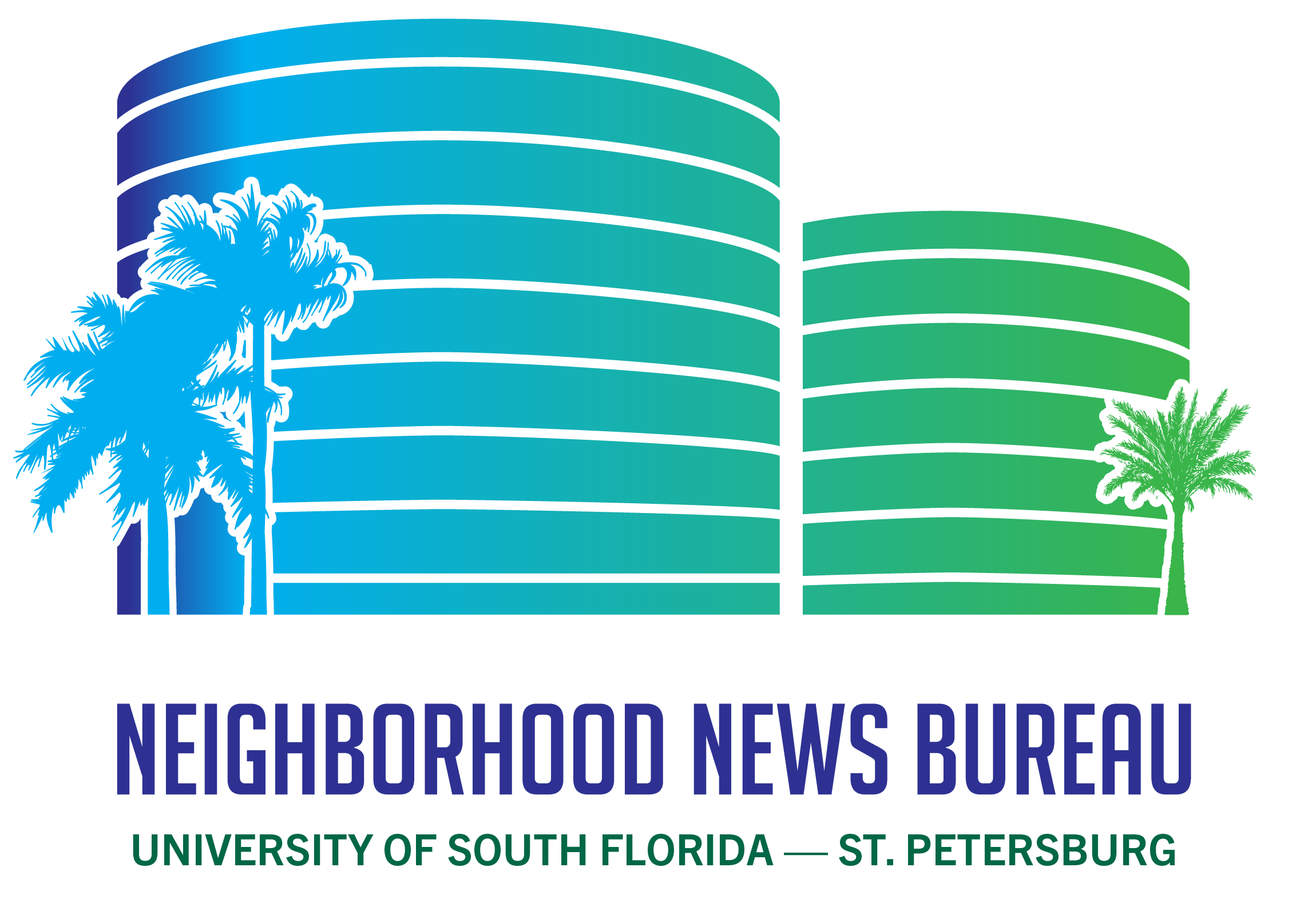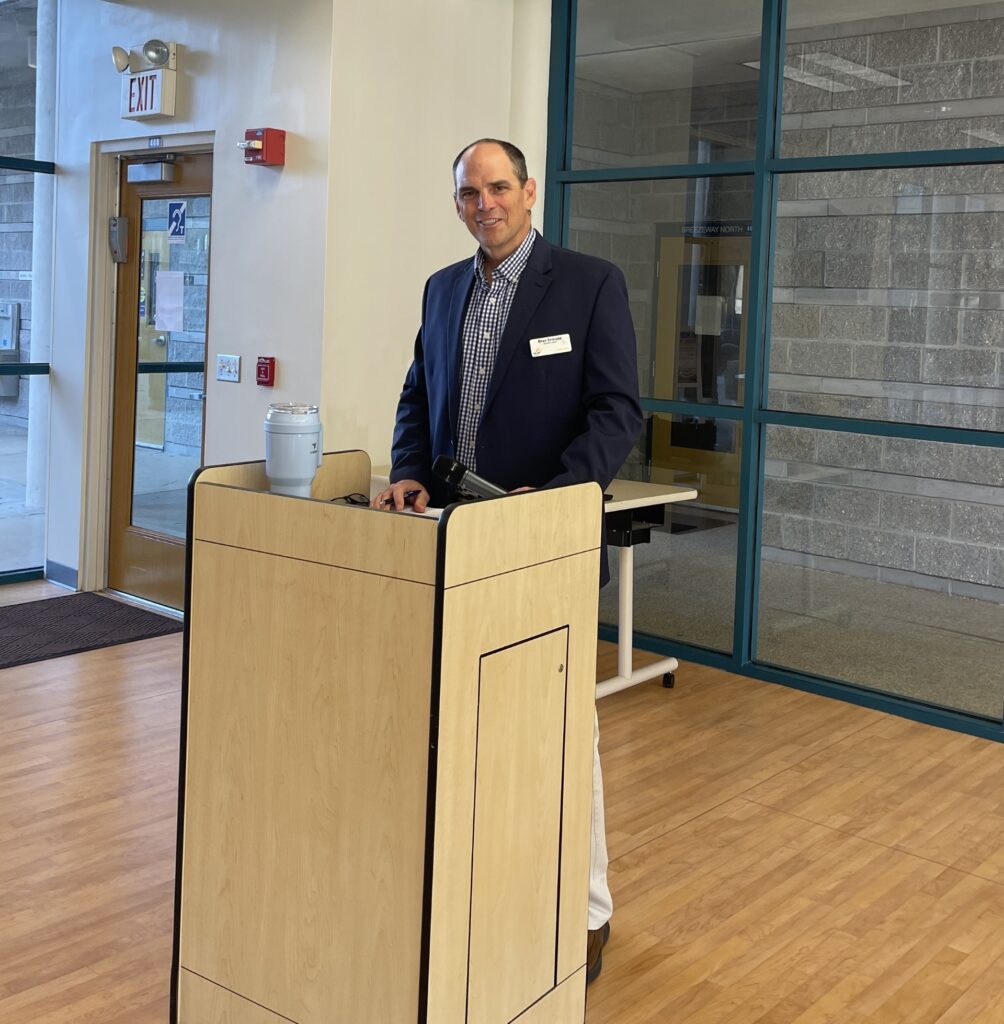
By Jordon Pfeiffer
On Sept. 24 at The Arc Tampa Bay in Clearwater, the Florida Agency for Health Care Administration held a town hall to discuss the expansion of the new Intellectual and Developmental Disabilities Comprehensive Managed Care Program.
The ICMC Program’s intention is to aid the 21,000 adult individuals in Florida with intellectual and developmental disabilities presently sitting on a waitlist needing services. Last year, the ICMC began as a pilot program with a very small cap space of 700, but now, with the legislature’s funding, the program’s extension allows for 2,108 spots to be filled by waitlist candidates. By next July, the program hopes to have even more availability.
“The success of this program is multiple things, but first of all, it’s to be collaborative. With the legislature, with families, with providers,” ICMC Program Director Kali Wilson said. “We want many people at the table. We want parents at the table. We want self-advocates at the table. We want providers at the table. We want to make sure we allow for open communication to continue. Because if we’re continuing to talk and we’re trying to focus on this in a positive manner, then it really is just going to work better for the [IDD] population itself.”
From the ages of zero to 22, individuals with IDD in Florida are supported by the school system and other childcare programs, but afterwards, family members must find other services to aid them. Before the ICMC, the other opportunities were few and far between.
“Until this program started, the only avenue for adults with intellectual and developmental disabilities to gain access to services and to get those services paid for, was through the iBudget Waiver,” Wilson said. “So, the legislature in 2023 put forward this opportunity for a managed care organization to see how we
could potentially offer a separate avenue for individuals to gain access to those services.”
The Florida iBudget Waiver, otherwise known as the Med Waiver, similarly focuses on the care and aid of persons’ with developmental disabilities. Wilson described the creation of the ICMC as a means to provide another route for families to take, and potentially get off the waitlist quicker.
The ICMC is currently being provided services and opportunities through The Arc Tampa Bay, a well-known non-profit organization with a mission of serving individuals with IDD.
“We provide the opportunity for them [ICMC] to meet with the community, because as one of the largest providers in the state, a lot of people are coming us and asking questions,” said Brian Siracusa, president and CEO of The Arc Tampa Bay. “So we’ve submitted to providing services through them, but at this point, we are not in any way affiliated other than that.”
While the Arc is contributing the necessary resources for the program to work, Siracusa has feelings of hesitancy toward the ICMC, saying the term “managed care” evokes a sense of uncertainty for many in the community.
“When you talk to other people in managed care programs they don’t always have glowing reviews of the system,” Siracusa said. “So there’s challenges. How is this going to work? How is it going to be different?”
Both Wilson and Siracusa share similar apprehension over the program’s struggles with consistent subsidization. While the legislature is funding the expansion, the concern lies with proper funding for the workers in the system.
The state of Florida ranks 50 out of 51 states, including the District of Columbia, in funding rates for support coordinators.
“We want to make sure that the providers are getting paid for the services that they’re providing,” Wilson said. “Appropriately and on time.”
Wilson explained that in Florida, support coordinators make $60 total for a four hour period providing care. However, in New York, these same workers would make $157 for the same hours worked and the same care provided.
“The fight is with getting us more funding,” Siracusa said. “And I think the legislature is understanding of that.”
The fight for better funding was discussed heavily at the town hall meeting, which was attended by many parents and family members of persons’ with disabilities.
One parent there, Catherine Caceres, has a 21-year-old daughter named Maryn, who has IDD.
“My daughter has been on the waitlist since she was three,” Caceres said. “They put her on Children’s Medical Services. But I always knew that when she turned 21, I would have to hope that she would get on the Med Waiver.”
However, after hearing about the ICMC and thoroughly researching its mission, Caceres felt she found another opportunity for her daughter. She said she attended the town hall meeting and the very next day found out Maryn was already pre-enrolled.
“Because my daughter was in that transition spot, they knew she had to get on insurance,” Caceres said. “They asked if I wanted to officially enroll and I said ‘yes, I would.’ And, we actually got in on the 1st [of October].”




